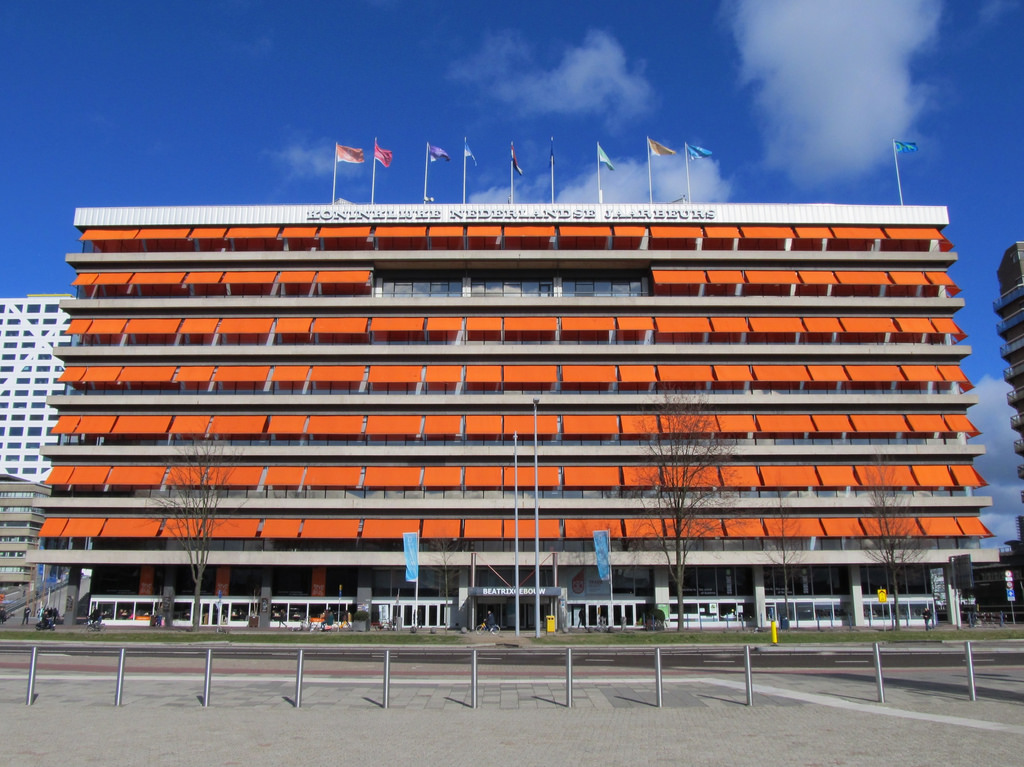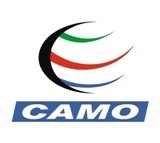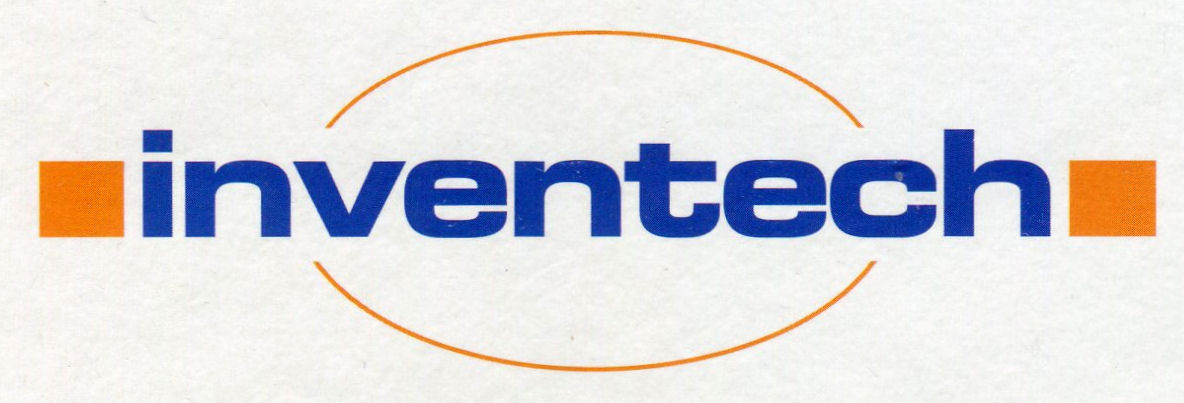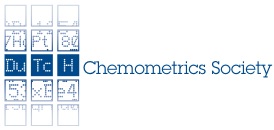Latest news
Current board members of the DCS
Rita Folcarelli (secretary)
Corbion Group Netherlands BV
Global R&D, Data Science
Arkelsedijk 46
4200 AA Gorinchem
The Netherlands
E-mail:
Agnieszka Smolinska (treasurer)
Maastricht University (NUTRIM School of Nutrition and Translational Research in Metabolism)
Department of Pharmacology and Toxicology
Universiteitssingel 50
6229 ER Maastricht
The Netherlands
Tel.:+31 43 3882495
E-mail:
Ewa Szymańska
Global Process Technology R&D
Friesland Campina Innovation Center
Bronland 20
6708 WH Wageningen
The Netherlands
Tel: +31 (0)6 1539 0934
E-mail:
Ewoud van Velzen
Unilever Foods Innovation Centre
Science & Technology Future Flavour
Bronland 14
6708 WH Wageningen
The Netherlands
Tel: +31 (0)6 1080 5411
E-mail:
A new board for the DCS
Recently a new DCS board has been installed! The new board is looking forward to organizing many interesting events, with the DCS Masterclass on Data Visualisation being their first event, later this year. A new edition of ICRM (International Chemometrics Research Meeting) is in preparation; stay tuned for more information about that!
DCS Masterclass on Data Visualization
The program of the upcoming DCS Masterclass on Data Visualization has been announced! Please check the DCS Masterclass page for more details.
Deadline for registration: October 20, 2019!
DCS Masterclass on Data Visualization
November 12, 2019
Bar Beton, Utrecht Central Station
The Netherlands
The Dutch Chemometrics Society (DCS) cordially invites you to a DCS Masterclass on Data Visualization! The Masterclass will feature two renown plenary speakers from the data visualization field: Casper Albers and Sara Sprinkhuizen.
 Casper is a professor at Rijksuniversiteit Groningen in applied statistics and data visualization. His research focuses on statistical modelling of psychological processes, applied in clinical psychology and environmental psychology and on the interplay between statistics and science communication. He has over 50 peer reviewed papers, has given numerous lectures and workshops and occasionally writes scientific columns for Dutch newspaper De Volkskrant. Casper will mainly speak about a theoretical basis for multivariate data visualization (e.g. biplots).
Casper is a professor at Rijksuniversiteit Groningen in applied statistics and data visualization. His research focuses on statistical modelling of psychological processes, applied in clinical psychology and environmental psychology and on the interplay between statistics and science communication. He has over 50 peer reviewed papers, has given numerous lectures and workshops and occasionally writes scientific columns for Dutch newspaper De Volkskrant. Casper will mainly speak about a theoretical basis for multivariate data visualization (e.g. biplots).
 Sara is a freelance data analyst and data visualization expert. After having studied physics, she got intrigued by data visualization because proper data visualization can strongly contribute to get complex messages across. She is currently active as data analyst, data visualizer and consultant for multiple international companies and research institutes, including MIT Media Lab, the online newspaper De Correspondent, the Dutch medical journal Nederlands Tijdschrift voor Geneeskunde, and the Màxima Medical Center in Eindhoven. Sara's talk will mainly focus on perceptional and aesthetic aspects of data visualization.
Sara is a freelance data analyst and data visualization expert. After having studied physics, she got intrigued by data visualization because proper data visualization can strongly contribute to get complex messages across. She is currently active as data analyst, data visualizer and consultant for multiple international companies and research institutes, including MIT Media Lab, the online newspaper De Correspondent, the Dutch medical journal Nederlands Tijdschrift voor Geneeskunde, and the Màxima Medical Center in Eindhoven. Sara's talk will mainly focus on perceptional and aesthetic aspects of data visualization.
Two experts in data science and chemometrics will challenge the talks to trigger discussion. Renger Jellema (senior scientist at DSM Biotechnology Center, The Netherlands) and José Camacho (Associate Professor in the Department of Signal Theory, Networking and Communications at University of Granada, Spain) will take up the challenger role.
Date, time, location
The Masterclass will be held on November 12, 2019 at Bar Beton in Utrecht. Bar Beton is conveniently located at Utrecht Central Station and can thus be very easily reached by public transport. The masterclass starts at 09.30 hrs and ends at 16.00 hrs, followed by some drinks and snacks.
Registration and fee
Registration is done on a first come, first serve basis. We can accomodate at max 40 people, so make sure that you register in time! To register, please send an e-mail to our secretary Lidia Esteve Agelet via i
Deadline for registration: October 20, 2019
Detailed program
Click here (pdf file) to take a look at the detailed program of the day.
Credits and certificate of attendance
For (PhD) students: this course is worth 0.3 ECTS credits. If you require a certificate of attendance, please let us know (see below for contact details). We will make sure that your certificate is ready on they day of the event.
More information
You can contact our secretary Lidia Esteve Agelet via i
Sponsor
This event is kindly sponsored by the Institute for Molecules and Materials of Radboud University.
Subscribe
No formal membership to the DCS exists. However, you can be included on our mailinglist if you wish! To arrange this, please use the form below. You will receive a confirmation e-mail upon subscription (please check your spam folder as well because this e-mail may end up in there).
Do not forget to confirm your subscription in the e-mail that you receive!
If you do not receive an confirmation e-mail, please contact us directly via
31st Annual Chemometrics Symposium 2018
“Theme of This Year”
Wednesday October 24, 2018; Utrecht, The Netherlands

The Dutch Chemometrics Society cordially invites you to its Annual Chemometrics Symposium. This year the theme is “THEME” with a focus on practical applications. [NUMBER] speakers will cover a variety of subjects.
As usual, this symposium is an excellent opportunity to meet old and new colleagues, to learn about new developments in chemometrics and related fields and to discuss them in an informal and friendly atmosphere.
Speakers with their presentation titles [FROM 2016 STILL]
• Rudolf Kessler
“Perspectives in Process Analysis: Remarks on Robustness of Spectroscopic Methods
for Industrial Applications
• Jan Gerretzen
“A novel and effective way for preprocessing selection based on Design of Experiments”.
• Andrei Barcaru
“Thinking Bayes: creating new ways of interpreting GCxGC(-MS) data”.
• Cyril Ruckebusch
“Chemometric analysis of chemical images”.
• Olga Lushchikova
“Development of alarm system for water quality control based on flow cytometry data
of algal populations”.
• Ewoud van Velzen
"Robustness: A key parameter in the validation of multivariate sensory regression
models”.
Abstracts of the presentations can be found here [LINK].
The booklet with the program of the symposium day can be viewed and downloaded too. You will receive a printed copy of this program booklet when you attend the symposium. Please click here [LINK] to download the program.
Location
The meeting will take place in the Beatrixgebouw (Beatrix building) of the Jaarbeurs event location in Utrecht. This location is located next to Utrecht Central Station and can thus easily be reached by public transport. Also plenty of parking space is offered. More details can be found on the Jaarbeurs website
Time [TO CHECK]
Registration and coffee between 9:15 and 10:00, opening symposium at 10:10.
Fee [TO CHECK]
The registration fee is 150 euros (75 for students and PhD students). Everything is included in the fee: attendance to all conference sessions, lunch, refreshments and drinks at the end of the day.
Language
The official language of the symposium is English.
Posters
Participants are invited to share their work during the poster session that will take place during the lunch break. A poster prize (100€) will be awarded to the best poster. If you want to submit a poster, send an e-mail before October 1, 2018 with title and abstract to
How to register
Please fill in the registration form [LINK]; payment is handled by the registration form as well. Dutch citizens are requested to pay via iDEAL, others can pay via bank transfer. [CREDIT CARD??]
Flyer [TO ADD]
Use this link to download the flyer of this symposium: Flyer_DCS_ACS2016.pdf
Sponsors [TO ADD/CHANGE]




![]()

On behalf of the organizing committee we are looking forward meeting you in Utrecht,
Jeroen Jansen (Radboud University, Nijmegen)
Gerben Mooiweer (JDE Utrecht)
Agnieszka Smolinska (Maastricht University)
Lidia Esteve Agelet (Mars Inc.)
Jan Gerretzen (AkzoNobel Specialty Chemicals)
Jos Hageman (Biometris, Wageningen University & Research)

Conference program ICRM 2017
The conference program of ICRM2017 is available! Click here to view it.
Chemometrics in industry: a 360˚ view
Onno de Noord
This will be a ‘past, present and future’ talk, based on my 30 years experience with chemometrics in industry. During that period I have covered all areas from basic research to auditing field applications, mainly within the context of process analytical chemistry and process chemometrics. One of the themes to be discussed is the gap that exists between (academic) proof of principle and a reliable working application in the field. Concepts such a sampling, chance effects, validation, model robustnes and quality assurance will be underlying themes during my presentation. Also, the selection of an appropriate chemometric approach that fits the data structure, as well as the questions on the table, will be discussed. A reflection on unsolved issues and current trends will be presented as well from an industrial perspective. A wealth of real world examples will be used for illustration.
Mini-CV:
Onno de Noord recently retired as Principal Research Scientist at Shell Global Solutions in Amsterdam, where he spent most of his professional career. He studied Pharmacy at the University of Groningen, where he specialized in Analytical Chemistry and Chemometrics. At his university he held a teaching job in Instrumental Analysis, and he graduated from the Chemometrics Research Group in 1984 on Multivariate Data Analysis for Quantitative Structure Pharmacokinetics Relationships. From 1985-1988 he headed the laboratory division at Pharma-Bio Research International, before joining the Shell Research Laboratory in Amsterdam as research chemometrician. In Shell he worked in several research areas, mainly related to Process Analytical Chemistry and Process Chemometrics. Long collaborations existed with the Free University of Brussels (Prof. D.L. Massart) and the University of Amsterdam (Prof. A.K. Smilde), while more recently collaborations were started with the Technical University of Valencia (Prof. A.J. Ferrer) and the Norwegian University of Science and Technology (Dr. H. Martens). He has been chairman of the Dutch Chemometrics Society, chaired the second ICRM and is on the Editorial Board of the Journal of Chemometrics. He (co-)authored more than 45 papers in peer reviewed journals, as well as many internal Shell reports, and he lectured at several universities, conferences and symposia.
At present Onno de Noord is consultant for advanced data analysis, among other things in the “Partners in Science” projects Shell Netherlands has with the Van Gogh Museum in Amsterdam and the Royal Picture Gallery Mauritshuis in The Hague.
https://www.researchgate.net/profile/Onno_De_Noord
Microbiome – Challenges and Opportunities
Morten Rasmussen
With modern genomic techniques it is now possible to measure the ecological composition of for instance the gut, the skin or the airways based on sequencing of amplified marker genes or assembly of sequences from the entire genome. In contrast to somewhat normal chemometric datasets, these data are counts, inherently compositional and further very sparse. This naturally introduces challenges in the initial quality control of the data and further in the statistical modeling. Sequencing of the genomic markup coupled with structured databases makes it possible not only to name individual bacteria, but further also to infer which enzyme they produce and which biochemical pathways that are present. This structural knowledge makes it possible to pursue integration of e.g. microbiome and metabolomics data via a bioinformatics database driven angle as opposed to a data driven chemometrics one.
This talk is going to introduce how microbiome data is obtained and point at some challenges in this regard. The structural knowledge obtained via sequencing opens an avenue of possibilities in terms of data modeling. Specifically, we will revisit common multivariate chemometric techniques such as Canonical Correlation Analysis for integration of microbiome and metabolomics data, and use the structural knowledge to softly enforce certain conditions on the model.
Mini-CV:
Morten Rasmussen is Associate Professor at the University of Copenhagen. His research focuses on development- and application of data driven mathematical and statistical methods for the modeling of complex biological systems with special emphasis on metabolomics and the microbiome within the area of clinical epidemiology. He is the holder of the 1st Bruce Kowalski Award in Chemometrics, which was awarded to him in 2014. He has published over 50 papers in subject areas like multivariate data analysis, chemometrics and systems biology.
Structure in matrix/tensor decompositions
Lieven De Lathauwer
In applications that involve matrix/tensor decompositions, it is often a good idea to exploit available “structure”. We discuss various types of structure and recent advances in the exploitation.
First, the entries of factor matrices are often not completely arbitrary. For instance, factors are expected to be reasonably smooth, they may contain a number of peaks, etc. We will elaborate on possibilities that emerge if factors admit a good approximation by polynomials, rational functions, sums-of-exponentials, … The use of such models has potentially many advantages. It may allow a (significant) reduction of computational and storage requirements, so that (much) larger data sets can be handled. It may increase the signal-to-noise ratio, as noise is fitted less well by the model. Some models come with factorizations that are essentially unique, even in cases where only matrix data are available.
Second, we focus on low multilinear rank structure, i.e., we consider data tensors that have a small Tucker core. Orthogonal Tucker compression is widely used as a preprocessing step in CANDECOMP/PARAFAC/CP analysis, significantly speeding up the computations. However, for constrained CP analysis its use has so far been rather limited. For instance, in a CP analysis that involves nonnegative factors, an orthogonal compression would break the nonnegativity. We will discuss a way around this.
Third, we focus on the analysis of multi-set data, in which coupling induces structural constraints besides the classical constraints on individual factors.
Fourth, we discuss (surprising) implications for the analysis of partially sampled data / data with missing entries.
In connection with chemometrics, aspects that we pay special attention to include: smoothness and peaks in spectra, nonnegativity of spectra and concentrations, large-scale problems, new grounds for factor uniqueness, data that are incomplete (e.g. because of scattering), and data fusion.
[1] Sidiropoulos N., De Lathauwer L., Fu X., Huang K., Papalexakis E. and Faloutsos C., "Tensor Decomposition for Signal Processing and Machine Learning", IEEE Transactions on Signal Processing, 2017, to appear.
[2] Vervliet N., Debals O., Sorber L., Van Barel M. and De Lathauwer L. Tensorlab 3.0, Available online, Mar. 2016. URL: http://www.tensorlab.net/ .
Mini-CV:
Lieven De Lathauwer received the Master’s degree in electromechanical engineering and the Ph.D. degree in applied sciences from KU Leuven, Belgium, in 1992 and 1997, respectively. From 2000 to 2007 he was Research Associate of the French CNRS. He is currently Professor at KU Leuven, affiliated both with the Group Science, Engineering and Technology of Kulak, and with the STADIUS Center for Dynamical Systems, Signal Processing and Data Analytics of the Electrical Engineering Department (ESAT). His research concerns the development of tensor tools for mathematical engineering. It centers on the following axes: (i) algebraic foundations, (ii) numerical algorithms, (iii) generic methods for signal processing, data analysis and system modelling, and (iv) specific applications. He was general chair of Workshops on Tensor Decompositions and Applications (TDA 2005, 2010, 2016). In 2015 he became Fellow of the IEEE for contributions to signal processing using tensor decompositions. In 2017 he became Fellow of SIAM for fundamental contributions to theory, computation, and application of tensor decompositions. Algorithms have been made available as Tensorlab (www.tensorlab.net) (with N. Vervliet, O. Debals, L. Sorber and M. Van Barel).
Additive and bilinear models to unravel multivariate experimental design effects
Marieke Timmerman
In many experiments, data are collected on a large number of variables. Typically, the manipulations involved yield differential effects on subsets of variables and on the associated individual differences. The key challenge is to unravel the nature of these differential effects. An effective approach to achieve this goal is to analyse the data with a combined additive and bilinear model. Well-known examples are principal component analysis, reduced rank regression analysis and simultaneous component analysis (SCA). In this talk, I will show how various existing models fit into the model framework, and discuss the type of insights that can be obtained witht the different variants. I will discuss into more detail simultaneous component modeling, where the multivariate data are structured in blocks with respect to the different levels of the experimental factors. Herewith, it is important to express that the dominant sources of variance in the observed data may differ across blocks. This can be done via SCA, presuming that the structure is equal across all blocks, or clusterwise SCA, which aims at identifying both similarities and differences in structure between the blocks. As with any component analysis, (clusterwise) SCA results heavily on the scaling applied. I will discuss the basic principles relevant for scaling, yielding the tools for a rational selection of scaling for a data analytic problem at hand. To illustrate the power of the approach, I will present analysis results from real-life data, and show that insight can be obtained into multivariate experimental effects, in terms of similarities and differences across individuals. The latter is highly relevant for subtyping.
Mini-CV:
Marieke Timmerman (http://www.rug.nl/staff/m.e.timmerman/) is a professor in multivariate data analysis at the Heymans Institute for Psychological Research at the University of Groningen, the Netherlands. Her research focuses on the development of models for multivariate data with complex structures, to achieve an understanding of the processes underlying these data. Her research interests are data reduction methods, including multi-set models, latent variable modelling and classification.
